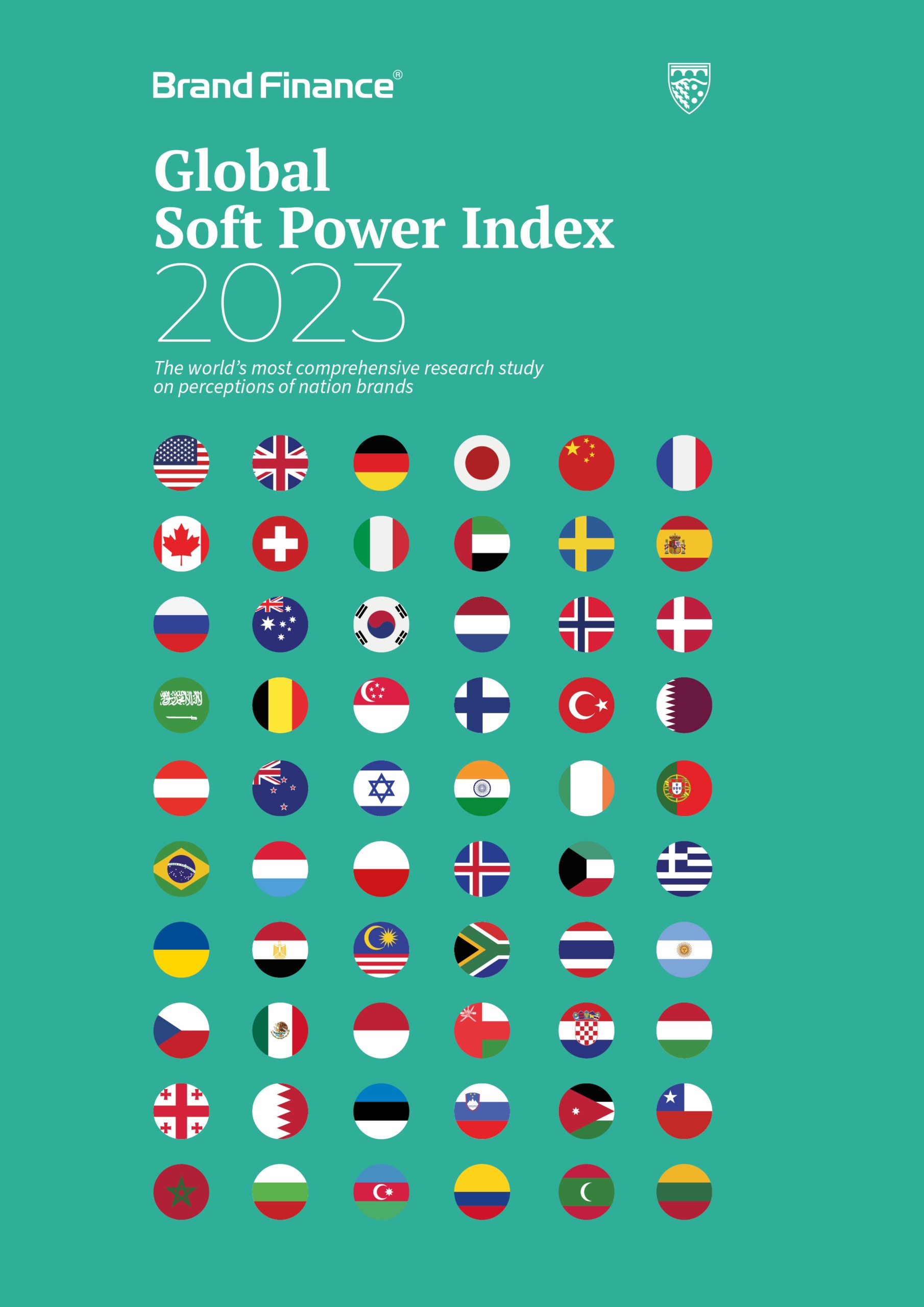This article was originally published in the Global Soft Power Index 2023.
Decisions and choices are made every day based on perceptions. The media – both traditional and social – contribute powerfully to creating perceptions of things, events, brands, and places that we do not know well or which are not close to us.

The media remain the main source of information for people around the world. News portals and social media provide us with everyday information about what is happening elsewhere in the world. What we see and read in the news is regarded as "important" since it is the information on which we build our understanding of current events throughout the world. So, we can even say that the media – traditional through storytelling and social through algorithms – decide what is important and what is not. In current times of uncertainty, this information becomes a critical component of the society's functioning.
On 24th February 2022, the COVID-19 pandemic disappeared and the world, especially Europe, shifted its focus to the war between Russia and Ukraine. Overnight, Europeans stood in solidarity with the Ukrainian people. Not only do we now know exactly where the country is located, but we also know what its people are like – their customs, language, what they eat and wear. The media have been giving us a perfect X-ray of the country.
As per media psychology, the effect of mass media on the actions, manner, and contemplations of individuals and audiences is called mass media influence. This influence can be negative or positive. It is important to how your nation is viewed abroad.
According to the 2023 ranking, Ukraine and Russia rank second only to the United States and the United Kingdom on “affairs I follow closely” and both see score movements across other attributes, hinting to a strong relationship between the share of media and Soft Power. While Russia goes up on Familiarity (10th to 8th) and Overall Influence (7th to 4th), the country’s Reputation plummets (23rd to 105th) and drops in ranks on all attributes apart from “affairs I follow closely”.
On the other hand, Ukraine sees impressive gains in Familiarity (47th to 15th) and Influence (45th to 19th) pointing to its success in leveraging media and Soft Power to bolster hard power, but only registers a moderate gain in Reputation (70th to 68th). While it achieves mixed performance on different nation brand attributes, the impact of the key messaging of Ukraine’s wartime communications is visible in the attributes with biggest improvements: “internationally admired leaders”, “respects law and human rights”, “tolerant and inclusive”, “leader in technology and innovation”, and naturally “affairs I follow closely”.
Familiarity is a proven driver of brand health and growth. In his seminal empirical analysis: How Brands Grow, Byron Sharp emphasised the need for brands to be visible and easily recalled: “A brand’s mental availability refers to the probability that a buyer will notice, recognise and/or think of a brand in buying situations. It depends on the quality and quantity of memory structures related to the brand”. This conclusion applies equally to place brands.

The Global Soft Power Index provides an overall score of a nation’s Soft Power, thanks to measuring both its Reputation and Influence, with a wide range of nation brands attributes driving performance in both these KPIs. The third KPI – Familiarity – enables stakeholders to form their perceptions in the first place.
Developing Soft Power requires of nations to be visible, familiar, and relevant – be a part of people’s lives. Familiarity and Influence are clearly correlated: If you ‘know a country well’, you are more likely to perceive it as influential in your life.

Over time we have found some repeating patterns in terms of Familiarity and how this impacts the nation brands in the ranking:
+Size matters: Even a well-regarded small nation – e.g. Singapore – ranks relatively low for Familiarity. As with commercial brands, lack of ‘physical and mental availability’ handicaps smaller nation brands. In that context, overperformers are Switzerland, Israel, and New Zealand. Underperformers include Indonesia, Bangladesh, and Nigeria – big, non-European nations.
+Tourism appears to boost Familiarity, helping countries such as Egypt, Greece, and Thailand.
+Geographic variation – nation brand Familiarity is more variable geographically than Reputation or perceived nation brand attributes. A country like Algeria is very familiar to its neighbours, but its Reputation is relatively poor in all countries.

